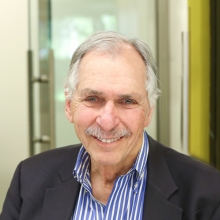
Martin Carnoy is Lemann Foundation Professor at Stanford University. He is co-director of the Lemann Center at Stanford, a former president of the Comparative and International Education Society and a fellow of the National Academy of Education and of the International Academy of Education. He has written forty books and more than 150 articles on the economic value of education, on the political economy of educational policy, on educational production, and on higher education. Much of his work is comparative and international and investigates the way educational systems are organized. Books include: The State and Political Theory (1984), Schooling and Work in the Democratic State (co-author, 1985), Faded Dreams (1994), Sustaining the New Economy: Work, Family and Community in the Information Age (2000), The Charter School Dust-Up (co-author, 2005); Cuba’s Academic Advantage (2007), The Low Achievement Trap: Comparing Schools in Botswana and South Africa (2012), University Expansion in a Changing Global Economy (2014), and Transforming Comparative Education (2019). He is currently completing a book, The Political Economy of Education, which discusses, from a critical perspective, what insights came be drawn about the provision of education. He first did research in Brazil in the 1960s as part of a four-year project on the Latin American free trade area at the Brookings Institution and University of São Paulo. Carnoy has lectured at Brazilian universities, including the Federal University of Bahia in 1985. He has done extensive studies on Brazilian education and policies such as the Education Development Plan (PDE, Plano de Desenvolvimento da Educação). He graduated from Caltech in electrical engineering and from the University of Chicago (Ph.D. in economics).

